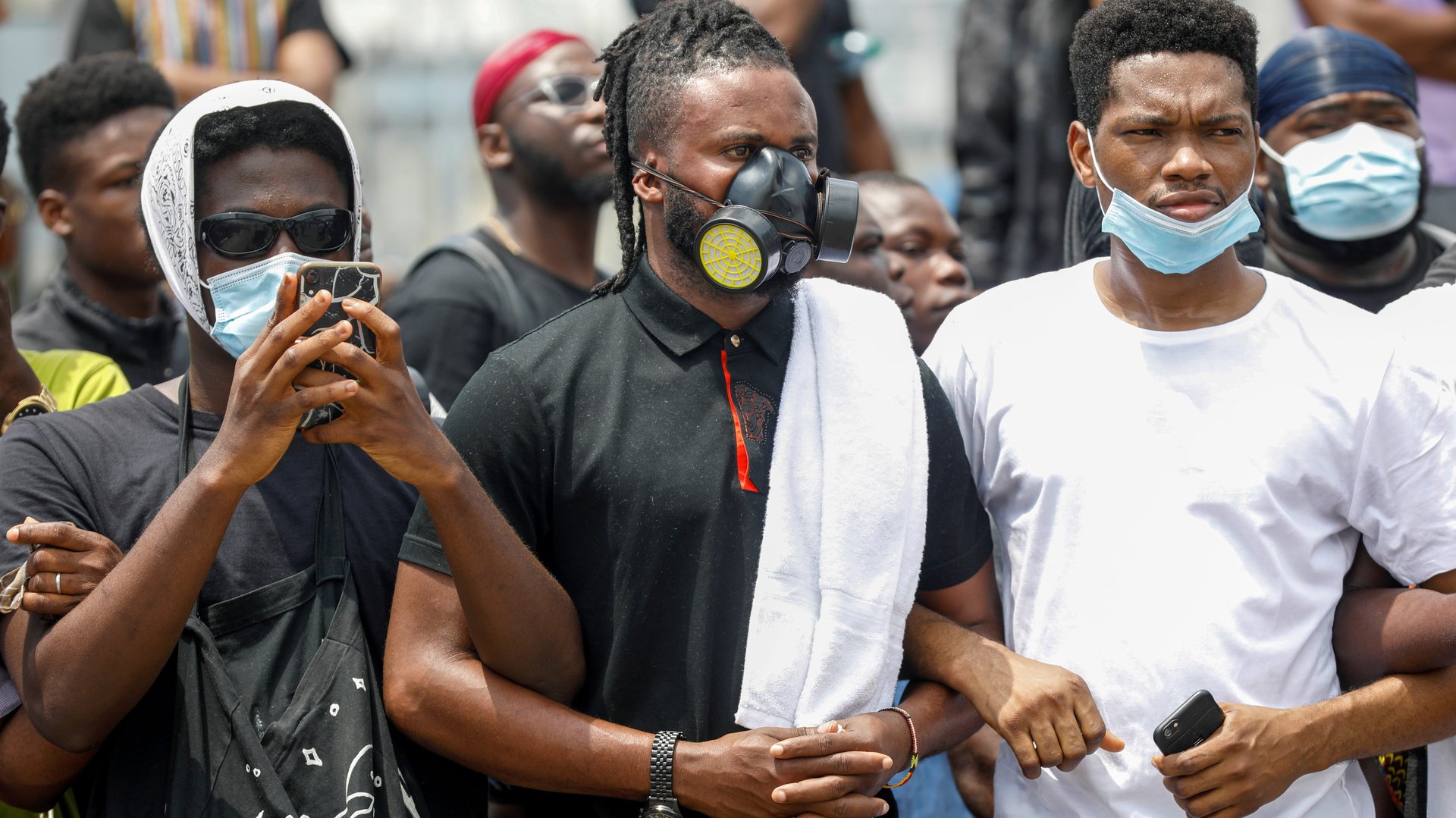Young Nigerian protesters are using social media to dispel misinformation from traditional media
Around 3 pm on Monday, police officers in Lagos arrested entertainment entrepreneur Ademola Ojabodu while he was protesting in Lagos as part of nationwide calls for an end to local police brutality.


Around 3 pm on Monday, police officers in Lagos arrested entertainment entrepreneur Ademola Ojabodu while he was protesting in Lagos as part of nationwide calls for an end to local police brutality.
Within hours, Ojabodu’s family had learned that he was to be charged with the murder of a police officer earlier in the day. The news came after TVC News, a popular TV channel affiliated with Nigeria’s ruling party, reported that policemen had been shot during the protests.
In fact, a policeman had been shot and killed but, contrary to the narrative set out by some local broadcasters and the police, he had in fact died from accidental shots fired by his fellow police officers rather than by protesters. To debunk Ojabodu’s trumped up charges, protest organizers and allies dug through pictures and video footage shared on Twitter which showed him at different points during the protest, uninvolved in the shootings. Even more importantly, mobile phone footage of the late policeman getting caught by friendly fire also emerged.
That instance captures how young Nigerians, who have now taken to the street for six days, are documenting events in real time through thousands of shared photos and videos not just to amplify their cause but also to counter false narratives with evidence when necessary.
It’s a notable role reversal of typical misinformation paths: essentially social media is being used to quell misinformation spread by traditional media channels and government institutions rather than vice versa. The moment also speaks to a philosophical battle between a youth-led informally organized movement and the older establishment outlets.
In another instance, Vanguard, a widely read national newspaper, falsely reported that a protester who was arrested but later released had been raped in custody—a report she has also since debunked with her legal team mainly through social media channels. In what’s been a more coordinated move, young protesters are also sharing videos of their peaceful demonstrations and evidence of further harassment by the police across WhatsApp groups to better inform a key demographic: older Nigerians. It’s a strategic choice given that WhatsApp’s long-established place as a key medium for spreading misinformation to older Nigerians. It’s part of a wider trend which has seen digital tools become central to organizing and mobilizing support to sustain the ongoing protests.
Given how pivotal social media and the internet has become to the protests, there are also increasing fears of an internet shut down or shuttering access to social media apps. But local digital rights groups are already driving awareness campaigns on how to use VPNs to stay online in the case of that eventuality.
As the protests continue to evolve, there are growing suspicions that government actors will attempt to derail them by provoking protesters into violent action in order to provide a premise for heavy-handed clampdowns. And there’s evidence this is already happening: protesters in Abuja and Lagos reported being attacked by hoodlums earlier on Tuesday (Oct. 14), supposedly in a bid to provoke a reaction.
But rather than retaliate, the dominant response by protesters has been to capture these attacks on camera as they happen to dispel any possible notions that their peaceful protests have somehow turned violent. “I wanted to make sure the appropriate story was told because the traditional media has shown themselves to be biased to this cause,” says Oyinkansola Fawehinmi, an entertainment lawyer who recorded and shared videos of attacks on protesters in Lagos on social media. “As a lawyer, I am very aware of how instrumental evidence is to a criminal case.”
Sign up to the Quartz Africa Weekly Brief here for news and analysis on African business, tech, and innovation in your inbox